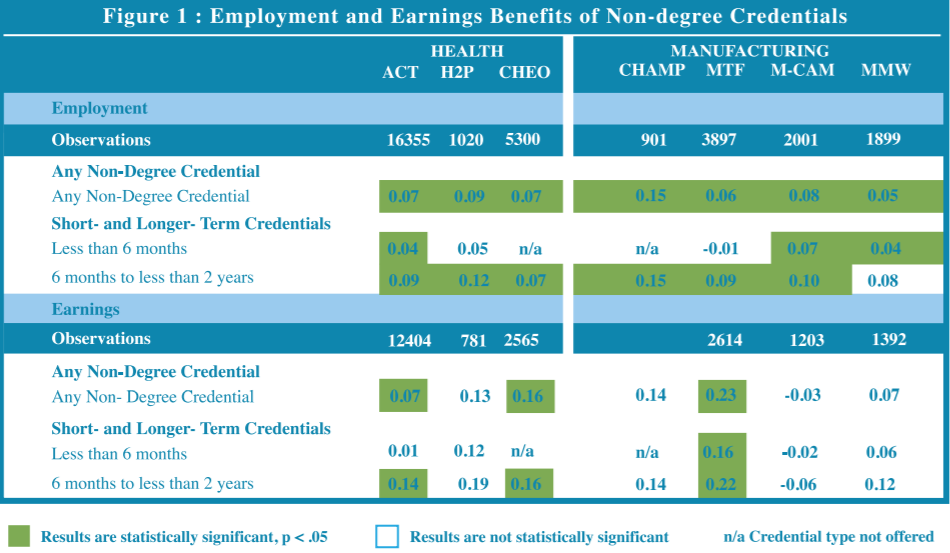You have /5 articles left.
Sign up for a free account or log in.
A new analysis looks at the labor market outcomes for adult students who earn nondegree credentials, including certificates (both credit-bearing and noncredit), professional licenses, and industry certifications. The report, which was done with funding from the Lumina Foundation and coordinated by DVP-Praxis Ltd., draws from seven independent studies that used administrative data on nondegree credentials issued by 49 community colleges in eight states, with a specific focus on an Obama-era workforce program that allocated $2 billion to community colleges.
Earning a nondegree credential of any kind was associated with a five-to-15-percentage-point increase in the likelihood of employment, according to the analysis, which controlled for a wide range of potential confounding factors.
Wage gains were larger and more consistent for credentials that take at least six months to complete, a relevant fact as the U.S. Congress considers bipartisan legislation to open up Pell Grants to programs of fewer than 15 weeks, the current cutoff length for eligibility. For example, adults who earned a credential in six months to one year increased their earnings by an average of $2,600 per quarter, according to the analysis, while credentials earned in one to two years were linked to an increase in earnings of nearly $4,600 per quarter.
However, the report found that even credentials earned in less than six months have a significant positive association with employment outcomes, ranging from four to seven percentage points across three data sets.
Consistent labor market returns were found in both health and manufacturing occupational fields, the report found. However, it also cited previous research that has identified gender-based wage gaps among nondegree holders, with the biggest wage gains tending to cluster in male-dominated sectors such as manufacturing and IT.









